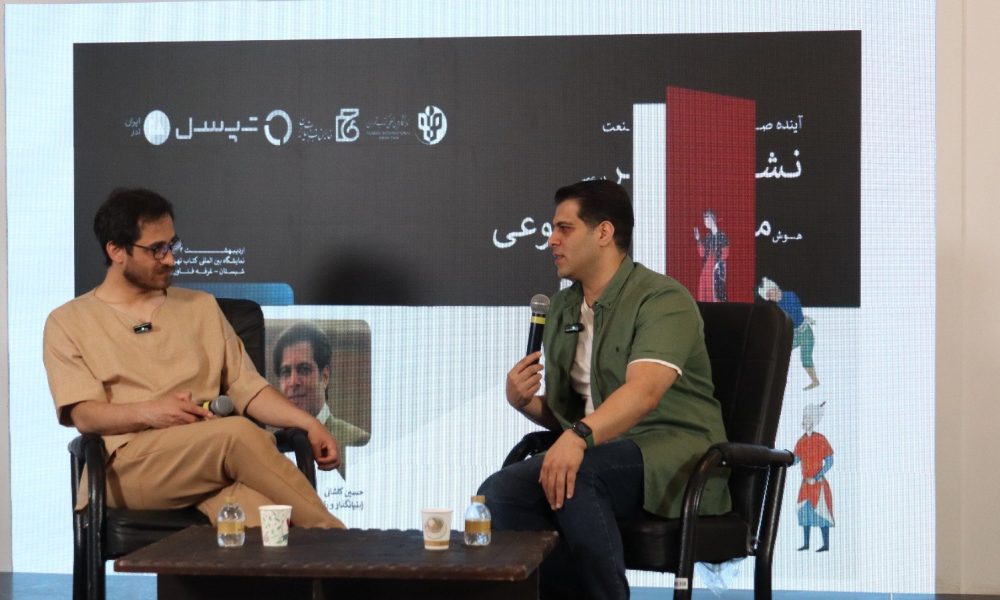The series of meetings on the publishing industry in the AI era, held in the Publishing Technologies Hall, was held on the sidelines of the 36th International Book Fair, this time with the presence of Hossein Kashani, founder of Aran Technology Holding.
According to Ideaagency, Aran Technology Holding has been at the Book Fair for 10 years, introducing visitors to the digital space and the traditional transition to technology, and has designed and deployed digital kiosks for searching at the fair.
Hossein Kashani, founder of Aran Technology Holding, said in a conversation with Sadegh Attarzadeh, referring to the annual volume of visitors to the book fair, “Book fairs with 5 million visitors need digital services to provide services and information.”
This tech entrepreneur explained about creating technological opportunities for online search at the book fair: “By conducting needs assessments in different spaces, we provide solutions so that people can receive in-person services. Facilitating the digital space was done through needs assessment, and we realized that in previous editions of the fair, people spent a lot of time finding the book they needed.”
The founder of this holding company discussed the trend of using digital kiosks at the book fair in the Publishing Technologies Hall: “By designing the book software, we pushed people and cultural custodians to use this platform. Since it is difficult for users to install an application on their mobile phones, we found it more practical to use a digital kiosk for temporary services instead.”
Kashani added: “We held various meetings with the cultural directors of the time to discuss the creation of digital services. At first, they created many obstacles that they had no specific reason to oppose. “To start in 2016, we set out to offer 10 kiosks to visitors. If you ask the general public if they were satisfied with such services, they would give the seal of approval. After the kiosks were installed, people became aware of the services and it was a trial and error process to better connect with the audience.”
He noted: “One of our missions is to facilitate the provision of digital services to the public. Currently, 30 percent of exhibition visitors use the digital kiosk platform.”
Kashani explained the importance of technology in the publishing industry: “The entry of technology into the publishing industry must happen because we live in an age of online information, and much of this information is lost at the book fair and is scattered in the form of text.”
Regarding the effectiveness of other kiosks for measuring audience taste, he said: “On kiosks, we can measure whether today’s taste is towards sports books or emotional ones. Based on the audience’s taste, we can prepare developed content that is suitable for the technology space.”
Kashani said that traditional polling is flawed: “Surveys and statistics show that the results of people’s responses in the survey are only 40 percent real, and this is a challenge. Data analysis and planning are carried out in the context of the services that are provided.”
He added: “Reports show that some publications rank higher in search results than other sites. This shows that the manager’s thinking is close to the tastes of book readers and that he has published books that people are more inclined to read and where it is better to invest.”
He concluded by saying, “The use of AI happened at this year’s book fair, and we presented the use of digital kiosks for two years before the new team agreed to let us use it. There is a lot of room for improvement and it is a virgin industry in the field of technology. We hope that this need will be recognized and worked on for the publishing sector, and that the consumer economy will become a thriving economy.”



No Comment! Be the first one.